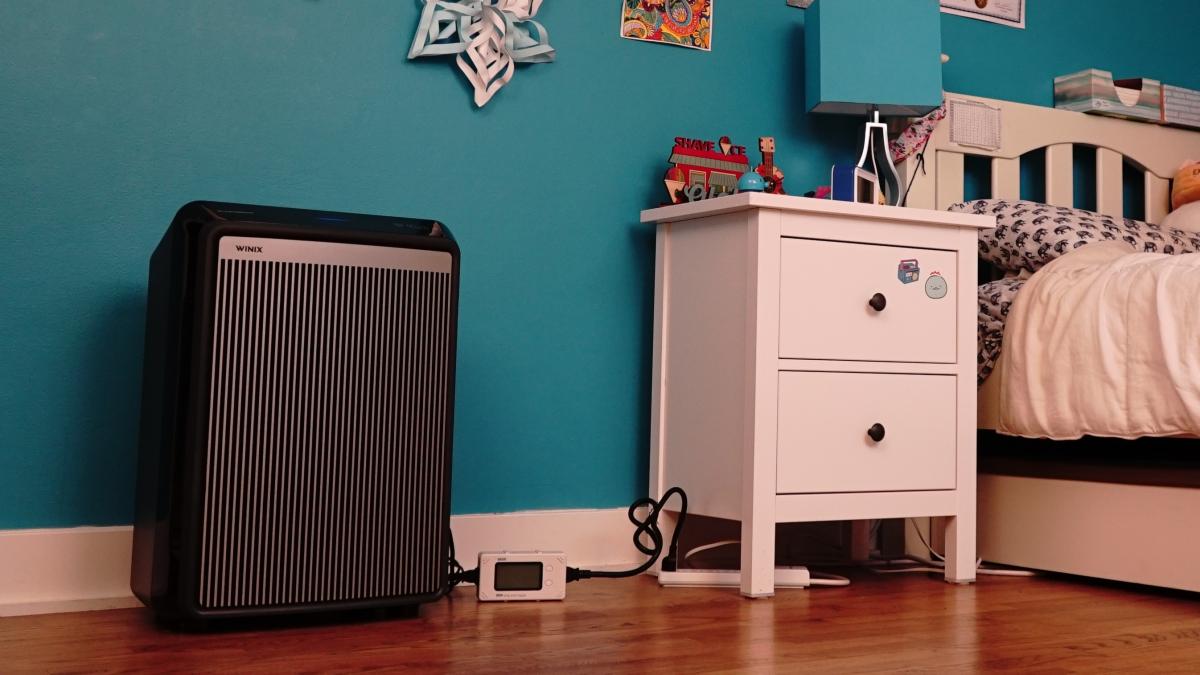
Can air purifiers reduce childhood asthma? DEOHS studies Sea-Tac air quality
A new study will test the impact of high-quality air purifiers, placed in children’s bedrooms, on indoor air quality and asthma symptoms for kids who live near Sea-Tac airport. The Airport, Air quality & Asthma (AAA) study is a partnership between DEOHS and the Public Health – Seattle & King County Community Health Worker Asthma Program.
Who is eligible to participate?
Children who:
- Are 6 to 12 years old
- Have mild to moderate uncontrolled asthma
- Live within 10 miles of Sea-Tac Airport
What happens in the study?
- Households are randomly assigned to receive an air cleaner either with or without a high-efficiency filter during the study.
- Air quality monitors are installed in the home.
- Households use the air cleaner for three months.
- Households delay participation in the King County Asthma Program for 3 to 4 months.
- Caregivers complete short weekly surveys online.
- Participants receive a gift card and high-efficiency air cleaner at the end of the study.
How to enroll
In order to participate in the AAA study, caregivers must first enroll their eligible children into the Public Health – Seattle & King County Asthma Education Program by completing this enrollment form (includes instructions in English and Spanish). If the child qualifies for the AAA study, a community health worker will contact the caregiver to schedule a home visit.
About the study
Children living near airports have higher rates of asthma due to pollution from both busy roads and airplane traffic. This study aims to determine whether air cleaners with high-efficiency particulate air (HEPA) filters can improve indoor air quality and reduce asthma flare-ups. Results of this study could potentially lead to new health care recommendations for vulnerable families living near airports.
Earlier DEOHS research has already found that communities around airports suffer short- and long-term health effects related to air pollution. This includes worsened asthma, chronic disease and early death. Marginalized communities and people of color are often hit the hardest by these health effects.
Contact us
Elena Austin, ScD, MS
Assistant Professor
University of Washington
elaustin@uw.edu
Jeffry Shirai, MS
Research Coordinator
University of Washington
jshirai@uw.edu
Our partners
DEOHS is proud to work with Public Health – Seattle & King County on this research study, continuing a long partnership creating healthier communities in our region. The county’s Community Health Worker Asthma Program includes representatives from four local nonprofit organizations: